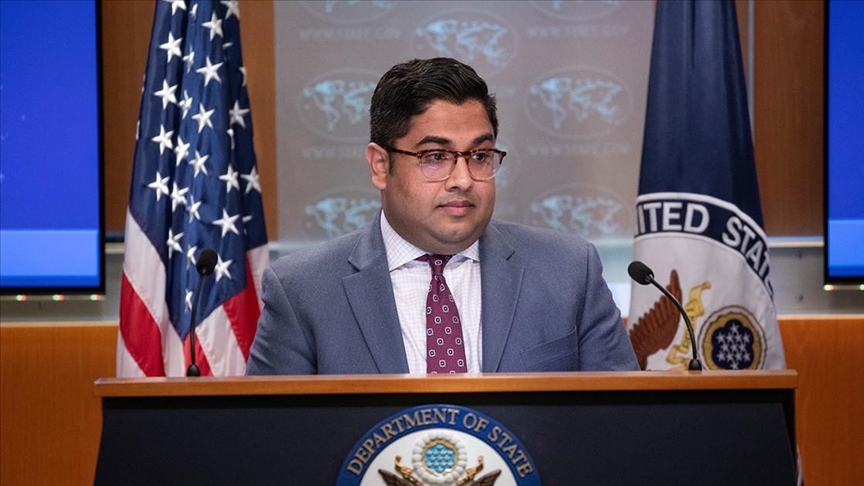THEY DIDN'T CLEAR IT WITH US
State Department highlights 'importance of not targeting civilian infrastructure' such as water, sewage treatment plants
Rabia Iclal Turan |29.07.2024

WASHINGTON
The US has requested additional information from Israel regarding reports of its bombing of a drinking water reservoir in Rafah, southern Gaza Strip, said State Department on Monday.
"We have been in touch with our partners" in Israel and its military, Deputy Spokesman Vedant Patel told reporters when asked about the reports. "We've sought out additional information as to what happened".
"Over the course of this conflict, you have seen myself, Matt (Miller) and others speak clearly about the importance of not targeting civilian infrastructure, things like water, sewage treatment plants. Of course, such a facility like this one would be inconsistent with that," he added.
Earlier on Monday, the Israeli army admitted that its soldiers were responsible for the bombing of the water reservoir in Tal al-Sultan. According to the Israeli daily Haaretz, an investigation into the incident has been initiated.
The incident has raised alarm about the worsening water crisis in the area.
Activists have recently circulated a video on social media showing an Israeli soldier planting an explosive device at Tal al-Sultan's main water reservoir, which was then detonated.
One of the soldiers posted a video of the explosion on social media with the caption "Destruction of the Tel Sultan water reservoir in honor of Shabbat," the daily said.
Local institutions and municipalities in Gaza have repeatedly accused the Israeli military of deliberately destroying water networks, wells, and desalination plants, exacerbating the drinking water crisis.
Also, fuel restrictions imposed by Israel have further hindered the operation of remaining desalination facilities in the region.
Rabia Iclal Turan |29.07.2024

WASHINGTON
The US has requested additional information from Israel regarding reports of its bombing of a drinking water reservoir in Rafah, southern Gaza Strip, said State Department on Monday.
"We have been in touch with our partners" in Israel and its military, Deputy Spokesman Vedant Patel told reporters when asked about the reports. "We've sought out additional information as to what happened".
"Over the course of this conflict, you have seen myself, Matt (Miller) and others speak clearly about the importance of not targeting civilian infrastructure, things like water, sewage treatment plants. Of course, such a facility like this one would be inconsistent with that," he added.
Earlier on Monday, the Israeli army admitted that its soldiers were responsible for the bombing of the water reservoir in Tal al-Sultan. According to the Israeli daily Haaretz, an investigation into the incident has been initiated.
The incident has raised alarm about the worsening water crisis in the area.
Activists have recently circulated a video on social media showing an Israeli soldier planting an explosive device at Tal al-Sultan's main water reservoir, which was then detonated.
One of the soldiers posted a video of the explosion on social media with the caption "Destruction of the Tel Sultan water reservoir in honor of Shabbat," the daily said.
Local institutions and municipalities in Gaza have repeatedly accused the Israeli military of deliberately destroying water networks, wells, and desalination plants, exacerbating the drinking water crisis.
Also, fuel restrictions imposed by Israel have further hindered the operation of remaining desalination facilities in the region.
No comments:
Post a Comment